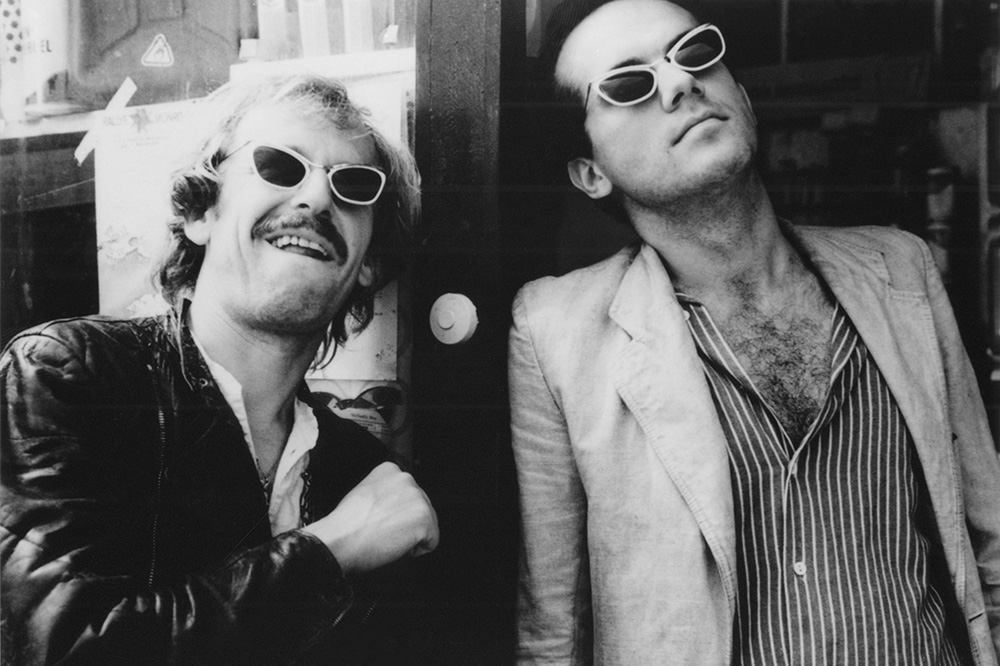Wim & Jim: Im Lauf der Zeit [Kings of the Road] [OmeU] D, 1976, R: Wim Wenders mit Lisa Kreuzer, Hanns Zischler, Wim Wenders, 174 Min
IM LAUF DER ZEIT handelt von einer Freundschaft zwischen zwei Männern: Bruno alias „King of the Road“ (Rüdiger Vogler) repariert Filmprojektoren und bereist mit seinem LKW eine Route entlang der deutsch-deutschen Grenze, und der Psychologe Robert alias „Kamikaze“ (Hanns Zischler) ist auf der Flucht vor seiner eigenen Geschichte. Als Robert seinen alten VW geradewegs in die Elbe steuert, wird er von Bruno herausgefischt. Ab da beginnt ihre gemeinsame Reise durch ein deutsches Niemandsland und führt sie von der Lüneburger Heide bis in den Bayerischen Wald.
Der Film wurde von Wenders ohne Drehbuch begonnen. Statt dessen gab es eine Reiseroute, die er vorher erkundet hatte: all die Kleinstädte entlang der Mauer, in denen es in dieser Zeit des großen Kinosterbens noch Lichtspieltheater gab. Der alte Möbelwagen mit den Kinoprojektoren hinten drin wird zu einer Metapher für die Filmgeschichte. Nicht umsonst ist der Film Fritz Lang gewidmet.
Diese „Männergeschichte“ handelt auch von der Abwesenheit von Frauen, von Einsamkeit und vom Nachkriegsdeutschland. “Die Amis haben unser Unterbewusstsein kolonialisiert”, sagt Robert einmal zu Bruno.
ENGL.
KINGS OF THE ROAD is about a friendship between two men: Bruno, aka “King of the Road” (Rüdiger Vogler), who repairs film projectors and travels along the inner-German border in his truck, and the psychologist Robert, aka “Kamikaze” (Hanns Zischler), who is fleeing from his own past. When Robert drives his old VW straight into the Elbe river, he is fished out by Bruno. This is the beginning of their shared journey through a German no–man’s–land, a journey that leads them from the Lüneburg Heath to the Bavarian Forest.
Wenders began the film without a script. Instead, there was a route that he had scouted out beforehand: all of the little towns along the Wall that still contained a movie theater in this era of cinematic mass extinction. The old moving van with the film projectors in the back becomes a metaphor of the history of film—it is no coincidence that the film is dedicated to Fritz Lang.
This “men’s story” also treats the themes of the absence of women, of loneliness, and of post-war Germany. At one point, Robert says to Bruno: “The Yankees have colonized our subconscious.”
Trailer:
